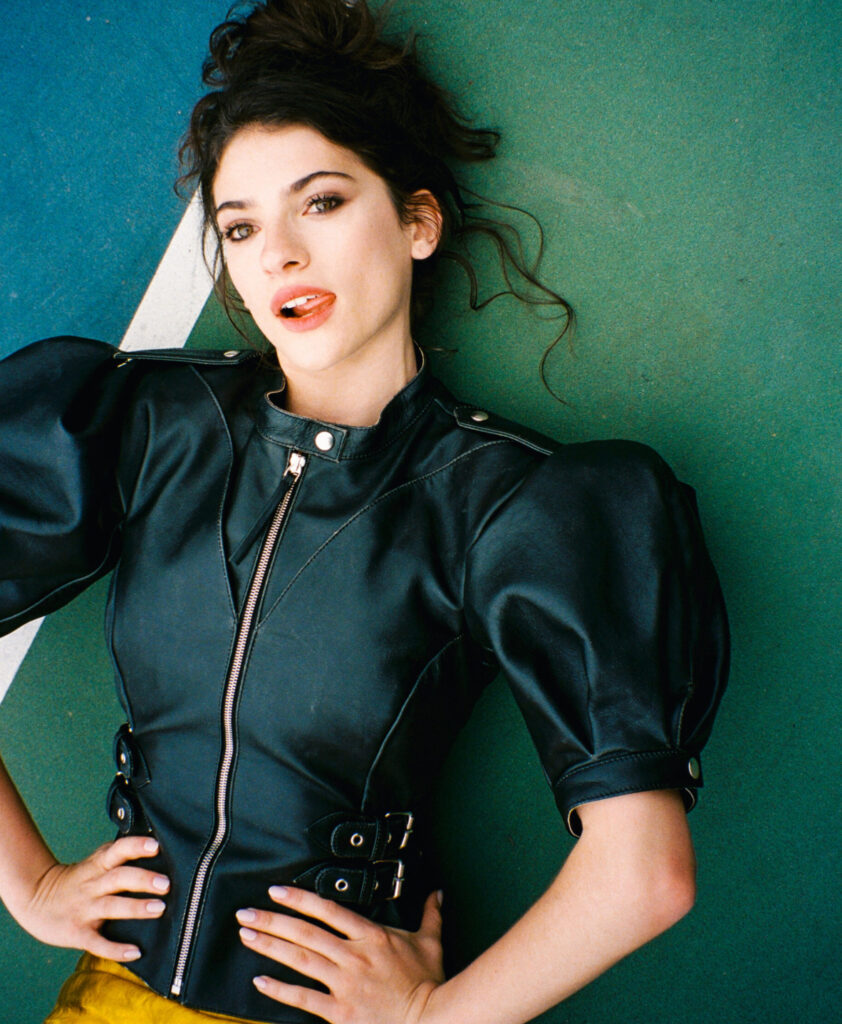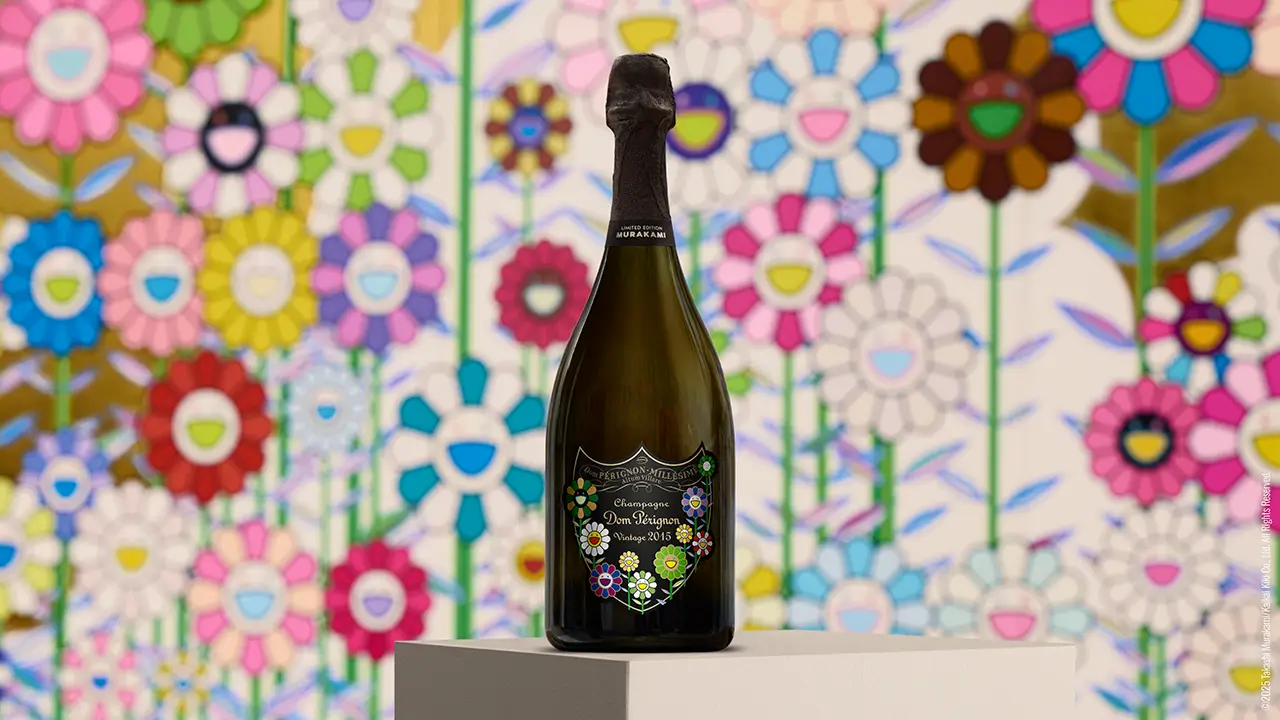
When Ella Rubin appeared as Anne Hathaway’s daughter in The Idea of You, the Amazon Prime romcom that swirled youthful infatuation with midlife reinvention, she embodied something pure and comforting. Her screen presence—gentle, observant, emotionally literate—was a breath of fresh air in a genre often stuck in clichés. But even then, under her polite smile and poised delivery, there was something quietly magnetic about Rubin’s gaze. A certain edge. A suggestion that her cinematic future wouldn’t remain confined to carefully lit bedrooms and beachside Instagram moments.
Now, that intuition has proven true. Rubin has swapped romcom sheen for something grittier, darker, and more dangerous. Her newest ventures—horror films soaked in psychological dread, slasher brutality, and primal human desperation—signal not just a career pivot but a creative awakening. In an era where young actresses are either typecast as scream queens or romantic sidekicks, Rubin is pushing past both archetypes to craft something altogether more elusive: the modern horror heroine.
Why Horror? Timing, Talent, and the Genre’s Golden Hour
It’s no accident that Rubin’s turn toward horror arrives at a moment when the genre is experiencing a renaissance. After a decade of prestige indies (Hereditary, The Witch, Midsommar) and commercially viable thrillers (Smile, Talk to Me), horror has reclaimed its status as a proving ground for serious acting. It’s also a hotbed for experimentation—where new filmmakers break in, and rising stars like Rubin can showcase range, resilience, and raw nerve.
What distinguishes Rubin is her instinct to inhabit horror with the same emotional integrity she brought to lighter material. She’s not chasing genre for shock value; she’s chasing depth. Her latest roles, whether involving suburban paranoia or supernatural possession, are grounded in character, not just carnage.
It helps that Rubin’s transition feels earned, not engineered. Her career path recalls that of other once-typecast actresses who reshaped their destinies through genre: Jamie Lee Curtis in the late ’70s, Jodie Foster in the ’90s, Anya Taylor-Joy in the 2010s. Rubin, though earlier in her arc, seems to understand what they all did: horror isn’t an escape from drama—it’s drama in extremis.
Early Promise: Scene-Stealing in The Idea of You
Ella Rubin’s breakthrough came via a supporting role in The Idea of You, the glossy Anne Hathaway-led age-gap romance that became a streaming hit in spring 2024. As Izzy, the skeptical and soulful teenage daughter trying to navigate her mother’s whirlwind romance with a 24-year-old boyband star, Rubin had the unenviable task of being the emotional ballast in a world designed for fantasy.
She nailed it. Her portrayal was subtle and striking—she brought a real-world intelligence to scenes that could’ve been played for melodrama. Critics noted her ability to shift between dry comedic timing and heartfelt confrontation. But more importantly, casting directors saw her emotional depth. Behind the Gen-Z deadpan was a character—and an actress—carrying a quiet storm.
This ability to thread complexity into the teenage psyche makes her an ideal figure for horror’s new wave, which prizes emotional realism over cheap scares.
Crafting a Modern Scream: Ella Rubin’s Horror Roles Unpacked
Rubin’s first major horror headline role arrives with Maggot, a high-concept psychological thriller slated for late 2025 release under A24’s growing slate. The film, which follows a teenage girl who begins to manifest physical insect mutations following unresolved trauma, is directed by indie darling Ezra Belkin (Tremble, Pine Needles). Early footage screened at Cannes’ midnight sidebar left critics buzzing—literally and figuratively.
Rubin’s performance in Maggot is said to channel both Cronenbergian body horror and the emotional vulnerability of Carrie. She plays a character physically revolting and spiritually fractured, yet never reduces her to victimhood. “She makes you want to look closer, even when it’s grotesque,” one festivalgoer reported. The role demands not just emotional honesty but physical daring—a plunge into prosthetics, transformation, and an unflinching depiction of psychological decay.
Another upcoming project, Stillness, takes a different tack. Directed by Camille Rivera, it’s a tightly wound cabin-in-the-woods thriller centered on a post-pandemic group retreat that devolves into ritualistic madness. Rubin plays Ivy, a quietly grieving college dropout whose isolation becomes the key to surviving a series of escalating mind games. There are no ghosts, no monsters—just human terror. And Rubin carries its moral center.
In both cases, Rubin isn’t screaming her way through danger. She’s thinking, reacting, processing. And through it all, she’s carrying the narrative. These aren’t ornamental roles—they’re architectural ones.
Why It Works: Ella Rubin’s Duality on Screen
At the core of Rubin’s ascent is her mastery of duality. She’s convincingly fragile yet tough, innocent yet unafraid. There’s a softness to her voice that never sounds helpless, and a gaze that doesn’t just look—it studies. This makes her a rare fit for horror’s evolving demands, where protagonists are expected to carry emotional stakes rather than just survive carnage.
She also embodies a specific generational cadence. Rubin doesn’t overplay her lines, doesn’t over-articulate. She lets silence work. In a media culture driven by noise, this restraint reads as authenticity. Her horror heroines aren’t caricatures or vessels—they’re people caught in extreme scenarios, asking the same existential questions as the audience.
This is what separates Rubin from other rising starlets. She’s not just playing horror. She’s exploring grief, guilt, trauma, and self-discovery through the prism of genre.
The Industry’s Response: Critics, Directors, and What’s Next
Hollywood has noticed. Following her turns in Maggot and Stillness, Rubin has reportedly been attached to two upcoming prestige-leaning thrillers: a female-led dystopian adaptation helmed by Reed Morano (The Handmaid’s Tale), and an Ari Aster-produced haunted house film set in post-industrial Detroit. Both projects reflect Rubin’s current brand: cerebral, artistically daring, and emotionally rich.
Critics have been effusive in early notices. Variety called her “a talent capable of upending genre norms.” IndieWire dubbed her “an actress whose discomfort burns brighter than her screams.” Directors, too, are lining up. Camille Rivera recently told Fangoria: “Ella doesn’t just act in the scene—she excavates it.”
But perhaps the strongest endorsement comes from her choice to resist overexposure. Rubin’s ascent is deliberate, disciplined, and devoid of tabloid noise. No product lines. No viral gimmicks. Just performances—strong, strange, and smart.
Ella Rubin and the Future of Horror’s Female Protagonist
It’s tempting to draw comparisons between Rubin and her horror lineage: Sigourney Weaver’s grit, Toni Collette’s psychological unraveling, Florence Pugh’s simmering dread. But Rubin is carving something else—something of her time. She doesn’t need to scream to be heard. She doesn’t need to wear blood like armor. Her terror comes from intimacy, from small choices, from the gravity of staying still when every instinct says run.
This is what horror is leaning into now: a redefinition of fear. Not just the boogeyman, but the breakdown. Not just survival, but embodiment. Rubin’s characters don’t just live through horror—they carry its residue. And they do so with a realism that makes even the most outlandish premise feel uncomfortably close.
Ella Rubin, Uncontainable and Undeniable
In less than three years, Ella Rubin has journeyed from supporting teen roles to the center of Hollywood’s most emotionally demanding genre. And she’s done so without losing her composure or compromising her curiosity. She is at once a throwback to the method-driven actresses of the ’70s and a blueprint for the next era of horror storytelling—one grounded in empathy, intellect, and subversion.
What comes next for Rubin is likely more than just horror. But her foray into the genre has already proven that she isn’t afraid to get messy, to go deep, and to tell stories that hurt as much as they haunt. She doesn’t play victims—she plays survivors. Thinkers. Watchers. Quiet fighters.
For Hollywood, Ella Rubin is the kind of actress you build films around. For audiences, she’s the kind of presence you can’t look away from—even when the scene makes your skin crawl.
No comments yet.









